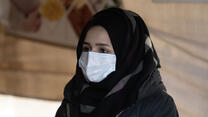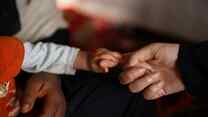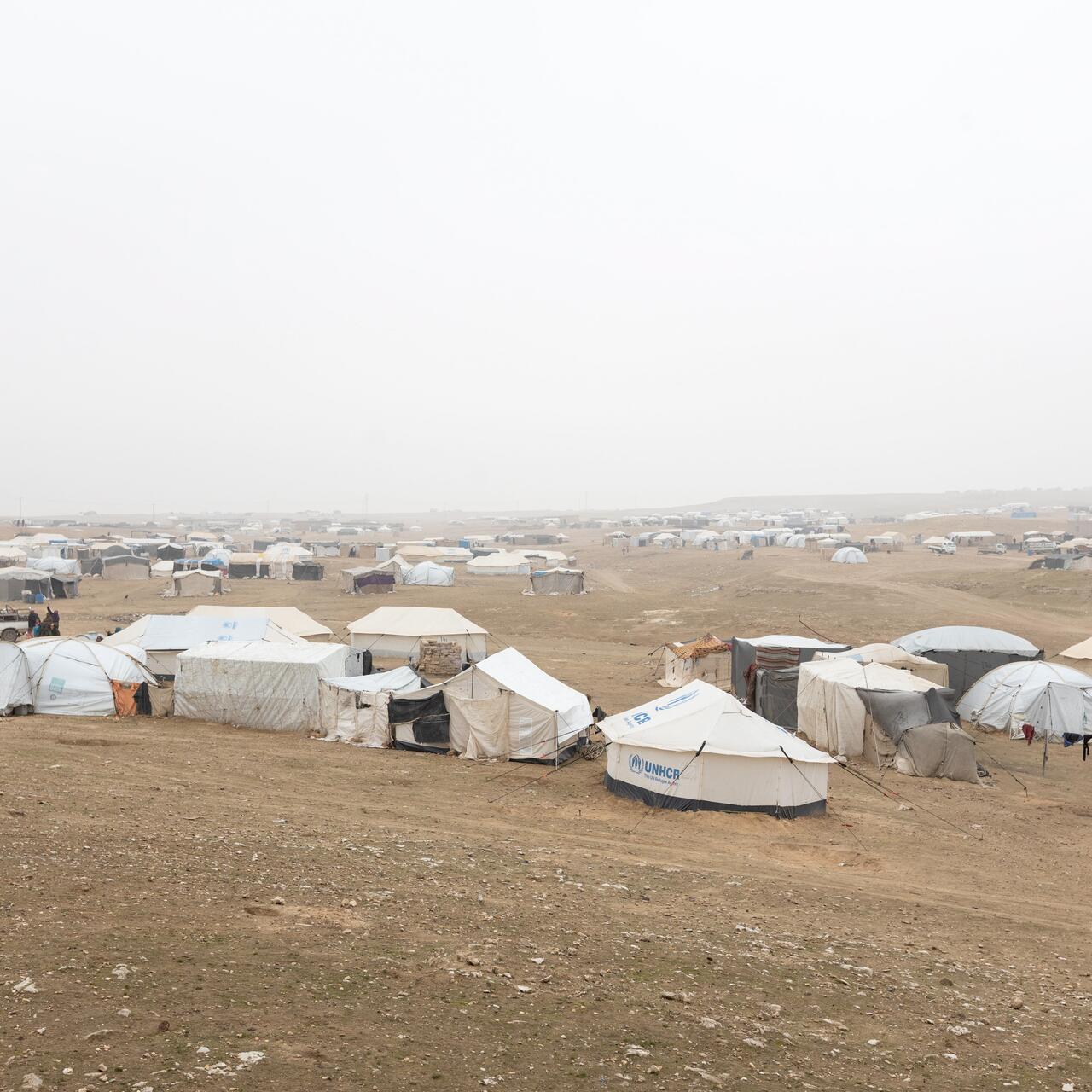
In Syria, more than a decade of war has brought the country's health system to the brink and left millions of people facing a spiralling economic collapse.
Around 90% are living below the poverty line, and many are struggling to meet their most basic needs. A cholera outbreak, which began in August 2022, is exposing the fragility of Syria’s water supply and health care systems and the impact this has on the lives of vulnerable families.
With the devastation left behind by the earthquake in Türkiye and northwest Syria, there is now a crisis within a crisis. In addition to providing emergency aid in earthquake-affected areas, the IRC, together with the European Union (EU), has been running programs to support health facilities and improve access to care for people in northwest and northeast Syria.

Already, before the earthquake, a third of all hospitals and nearly half of primary healthcare centres inside Syria were non-functional. The protracted conflict has also damaged the water infrastructure, forcing many Syrians to resort to alternative and often unsafe water sources.

The disease can spread quickly in contexts such as Syria, where people displaced by war often live in small tents and makeshift homes and have limited access to safe water and sanitation.
“The water pollution problem is not in our hands as doctors and health waters,” explained Dr. Natheer*, a doctor at the EU-funded health facility. “We can provide medicine and health education. As for the challenges, it is about [clean water].”
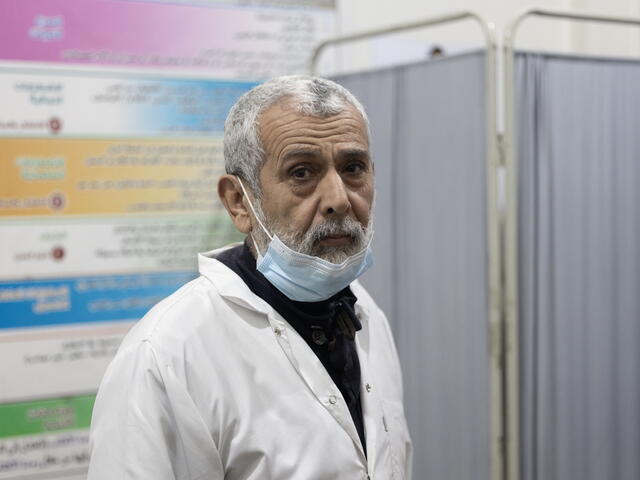
With support from the EU, IRC teams have trained clinical staff and community health workers to diagnose and treat patients who become sick with cholera. They also screen children under five for malnutrition and provide specialised care for pregnant and lactating women as well as the elderly.

As patients come into the health facility, IRC health workers evaluate them for severe dehydration, which is a common symptom of cholera and can become fatal if left untreated.
For moderate to milder cases, IRC health workers bring patients to a rehydration corner and provide them with an oral rehydration solution. For more serious cases, the IRC brings them to an emergency ward or refers them to a more specialised health facility in the region.
Once patients leave the health facility, IRC health workers go out on visits to ensure they are recovering well and taking the proper medication if needed.
Through funding from the EU, the IRC builds health awareness about cholera among affected communities, so that they learn prevention techniques and what they should do if they do fall ill.
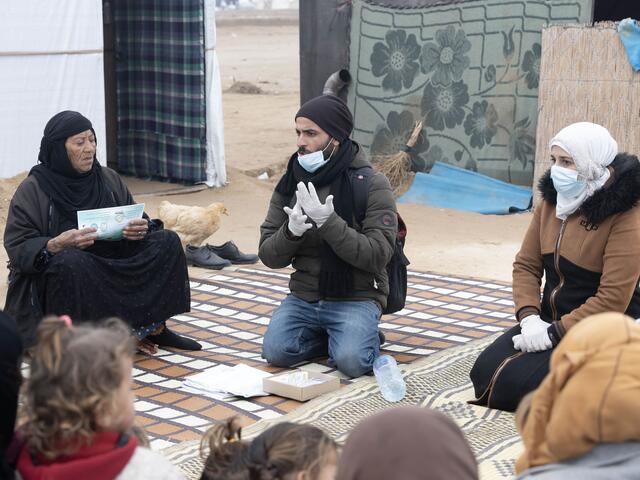

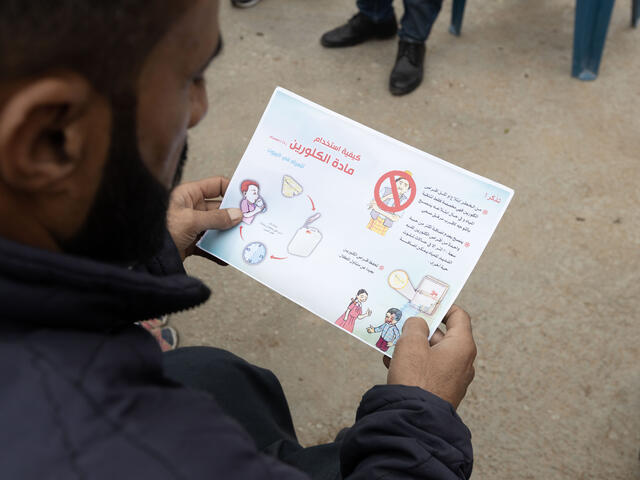
IRC mobile health teams do house-to-house visits to distribute educational materials and provide referrals if they see someone suffering from cholera symptoms. They also provide chlorine tablets that can be used in water tanks to reduce the risk of cholera in households.
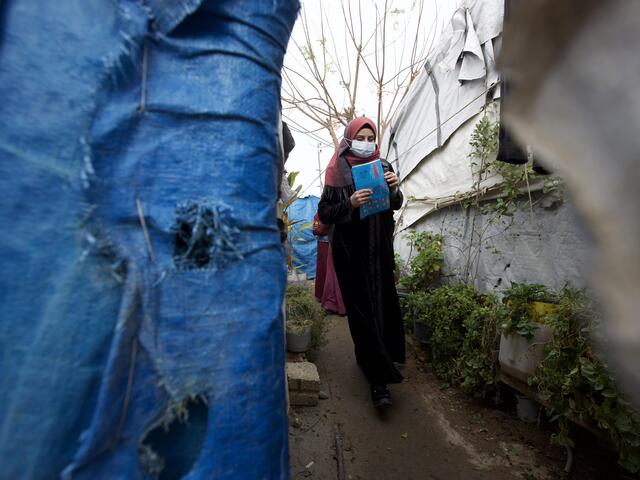
Saif*, 58, went to an IRC mobile health clinic after experiencing severe diarrhea. He received counseling and a referral for treatment at a local hospital, where he received oral rehydration salts and zinc.
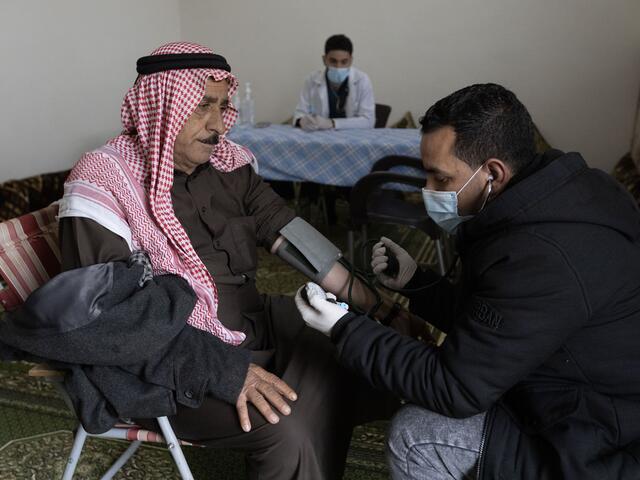
For Saif, gaining a better understanding of his condition was invaluable because he had been scared about his symptoms.
Conflict, economic instability, disease, and natural disaster have upended the lives of people like Saif, putting their physical and mental health at enormous risk. As Syria continues to face these challenging crises, IRC staff is committed to providing access to essential medical care, and raising health awareness among vulnerable populations.

Dr. Natheer explains what draws him to this line of work, especially during a public health crisis that can often take its toll on a person: “A sense of responsibility and giving back. When I feel I have provided something for my patients and helped support them — that is what makes me stronger and better.”
*Names have been changed for privacy.
The International Rescue Committee partners with the European Union to provide life-saving support to people caught in conflict and disasters around the world. Our work funded by the EU enables people to survive, recover and rebuild their lives.

